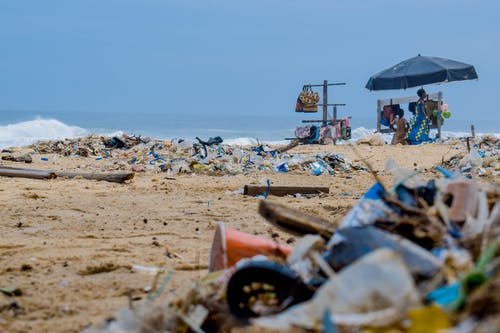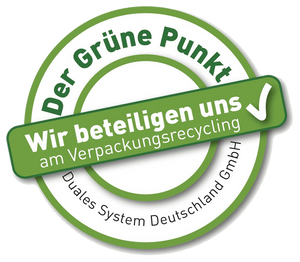Recent Post
Archive
- June 2022
- March 2022
- February 2022
- January 2022

Plastic Pollution: Everything You Need To Know About One Of The Biggest Environmental Concerns
Jasmine Smith
Jan 22, 2022
Plastic pollution is one of the biggest threats facing the planet. But how did our dependency on plastic become so toxic? In this blog post, we’re exploring how we became a nation dependent on plastic and what impact this has on now, and in our future.
The history of plastic
A world without plastic seems incomprehensible to many of us, and for a good reason. Since its creation just over a century ago, plastic has completely revolutionised how we live. In 1907, Leo Baekeland combined formaldehyde and phenol under heat and pressure to create plastic. What followed was a post-war society with a growing dependency on the material. Today, plastic is used in almost every industry. Most notably, the introduction of plastic has helped save lives in hospitals, increased road safety with helmets, and helped our society develop faster than ever before. Plastic is a pretty important component of modern society, so how did it become such a problem?
This blog post is an extension of our exploration of the impact of plastic bottles. If you want to take a closer look at how your drinking habits might be harming the environment, you can read this post here.
Single-use plastics
We've established how plastic hasn't always been perceived as an evil in society. Once upon a time, plastic was an exciting invention that opened a wealth of possibilities for a growing population. However, today plastic is viewed as something harmful and potentially disastrous for humanity and the planet.
It isn't all plastic we need to worry about, but our dependency on single-use varieties. Single-use plastics are products we use once and throw away afterwards. Whereas a plastic helmet has a long-term purpose, a chocolate bar wrapper doesn't. Instead, a chocolate bar wrapper lives a short life, isn't biodegradable, and ends up in landfills where it’s likely to travel to the ocean. We can use our helmet a hundred times, but we'll have to keep buying more chocolate, with more wrappers, producing more rubbish as a result. And single-use plastics are everywhere in our modern society.
Here are a few single-use plastics you're likely familiar with:
- Plastic bottles
- Sanitary products
- Food packaging/wrappers
- Plastic bags
- Coffee cups
- Cigarette butts
How plastic ends up in the ocean
Our oceans are full of plastic debris. Although it's not only single-use plastics polluting our oceans, these are by far the biggest contributors to the crisis.
One of the reasons plastic is so versatile is because it's lightweight. Modern cars are around 50% plastic, making them lighter and demanding less fuel as a result. However, weighing very little is also one of plastic's many curses. After our single-use plastic arrives in landfills, strong rainwater or wind whisk it away towards the ocean. The strong current takes hold of the plastic, dragging it deeper and breaking it into tiny microplastics.
Plastic can also arrive in the ocean directly from human activity. People illegally dumping waste is a significant contributor to the amount of plastic in our seas. Although there are strict rules against this, it still happens regularly. In addition to this, discarded fishing nets and equipment also add to rising plastic pollution and pose danger to innocent sea creatures.
What are microplastics?
Microplastics are tiny pieces of plastic up to 5 mm long. These particles are caused by larger plastic breaking down or are manufactured, usually for cosmetic or beauty purposes. Because these plastics are so tiny, they can pass through water filters and end up in larger bodies of water. Alternatively, larger pieces of plastic, such as plastic bags, can break into microplastics due to the pressure and movement of the ocean.
The environmental impact of plastic
The amount of plastic in our oceans is rapidly increasing. And with plastic production estimated to quadruple to 1,244 million tonnes by 2050, plastic pollution isn't going to disappear. We know how and why there's so much plastic in our oceans, but what impact does this have?
Plastic is a synthetic material, meaning it's made from chemicals. Due to its chemical nature, plastic products can't biodegrade and return to the earth. Instead, when it's floating on the ocean, exposed to the sun, it heats up and emits toxic fumes. These gases contribute to the Earth's rising temperature and threaten the health of all living things.
Some of this plastic will split into microplastics and float deep in the ocean where hungry sea creatures live. These animals mistake these plastic particles for food, consuming them and getting seriously ill or dying as a result. As these animals are dying from plastic consumption, local ecosystems are impaired. The ecosystem includes plants, animals, organisms, weather and landscape. A threat to one area of the ecosystem puts all others at risk. Meaning, if ocean creatures can't survive, the air we breathe, the food we eat and our local habitats are all in danger. As more ecosystems collapse, biodiversity will decrease, and life on earth will become inhabitable for animals and humans.
The Great Pacific Garbage patch
The Great Pacific Garbage Patch is the ocean's largest accumulation of rubbish. However, it's not the only one of its kind; across the ocean, piles of waste congregate and float upon the surface of the water. The Great Pacific Garbage Patch is actually two patches bound by the North Pacific subtropical gyre. In total, the patch is 1.6 million square kilometres (three times the size of France!)
These patches impose a risk to wildlife who get entangled in the rubbish. And as the plastic begins to disintegrate, emitting fumes as it does so, more microplastics for sea creatures to consume are created.
The more plastic rubbish we produce, the wider these patches will grow. It's estimated that by 2050 there will be more plastic in the ocean than fish, and garbage patches like the Great Pacific Garbage Patch are one of the leading causes for this.
What you need to know about plastic and plastic pollution
Plastic isn’t the terrible material many of us might believe it to be. The creation of plastic has transformed and brought many positive elements to how we survive and thrive in the modern world. However, it is the extent that we depend on plastic that’s become a problem. Overconsumption of single-use plastics has led to rising carbon emissions, is destroying ecosystems and putting the health and prosperity of all living creatures at risk. If we want to continue using plastic for the many benefits it has, we need to limit single-use plastics.
If you want to start using plastic in a positive way, we recommend investing in items that are long-lasting and made from recycled materials, like Eco Chic's! Eco Chic’s products stop ocean pollution by giving plastic a new purpose. To show our range of stylish recycled accessories, click here.
Sources:
https://www.wwf.org.uk/updates/how-does-plastic-end-ocean
https://oceanservice.noaa.gov/facts/microplastics.html
https://www3.weforum.org/docs/WEF_The_New_Plastics_Economy.pdf
https://www.wwf.org.uk/updates/how-does-plastic-end-ocean
← Older Post Newer Post →


















